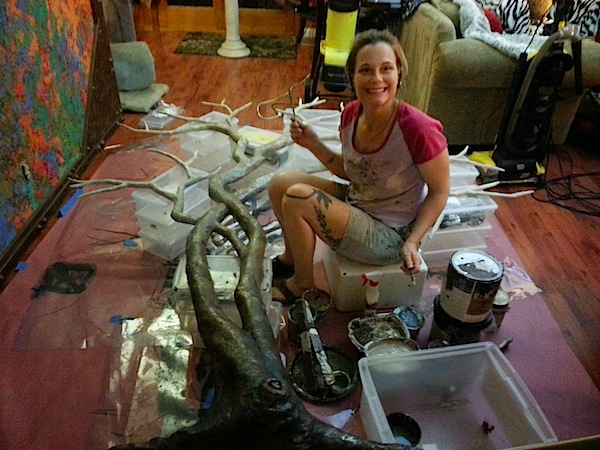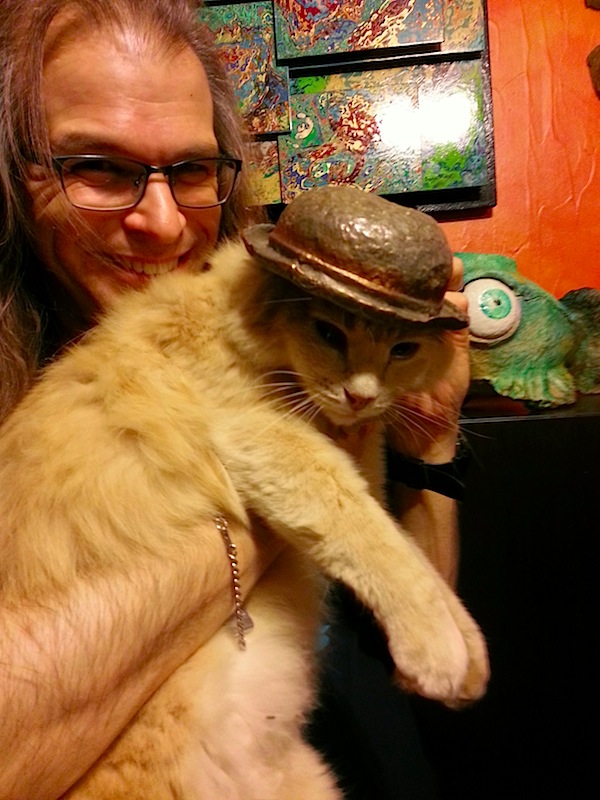
There's a current brouhaha in science fiction circles in which one group of (largely conservative) authors and bloggers (whom I read) got upset about how they were being treated by another group of (largely liberal) authors and bloggers (whom I also read) - and decided to stuff the nomination ballots for the Hugos to show how irritated they were.
The situation isn't black and white - there are legitimate complaints on both sides - but it isn't symmetric either: regardless of any legitimate differences, the side of the ballot-stuffers has engaged in some truly egregious behavior towards their fellow writers, towards the integrity of the awards process - and towards their fellow human beings.
Their complaint is that science fiction is being invaded by "social justice warriors" who put message over story, but, as one of my friends put it, you know you're in trouble when your name for your enemies includes the word "justice".
I am a social justice warrior.
I may have been raised in a conservative environment, I may have been a College Republican, I may be a devotee of Ayn Rand and my philosophy may be steeped in libertarian ideas … but I know what social justice is, I know why we need it, and I am proud to be one of the ones fighting for it.
Social justice is the simple concept that our society is structured in a way that systematically disadvantages certain groups, and that it is our moral responsibility to take positive action to make sure that our society does not continue to abuse them. That's it, and both the factual premise and the moral conclusion drawn from it are simply true.
It's your responsibility to understand the kind of society in which you live, to recognize how it is stacked against some groups of people within it, and to try to level the deck, and, because this advocates change, it often gets associated more with liberals trying to improve our world rather than conservatives trying to preserve what's already good about it.
But your responsibility to work towards social justice does not mean that it's your obligation to support the policies of some particular liberal who happens to think that he or she owns social justice. Ronald Reagan had a point when he said "Yet any time you and I question the schemes of the do-gooders, we're denounced as being opposed to their humanitarian goals."
Our society stacks the deck against all kinds of people: all races, creeds and colors; liberals and conservatives, the marginalized and the rich, laborers and businessmen, criminals and the honest. There's almost no place in our society where some collection of wealth or poverty, some amassed prejudice or complacency, or some unjust law or lawlessness doesn't trap someone in a place where they get the short end of the stick - and the policies that cause this are both liberal and conservative.
But one of the biggest traps we've had is sexual prejudice: the discrimination against and marginalization of people based on their sexual orientation, identity, or preferences. When I was growing up, being "gay" was an insult; when I was a teenager, it was OK to marginalize and mock gay people; when I was in college, memorably, a young gay man was beaten, tied to a fence, and left to die. We've come a long, long way since Stonewall … but we still have a lot farther to go.
That's why I'm so proud to see LIQUID FIRE appear high on the list of Lesbian, Gay, Transgender and Bisexual eBooks on Amazon. Dakota Frost, the protagonist of my series, is bisexual (and so am I) and my series is filled with as many races, genders and politics as I can fit: white and black, gay and bisexual and straight, liberal and conservative and noncommittal.
But my first goal is always to tell a good story.
When I start writing a Dakota Frost book, I have a little formula: I pick an alternative culture practice and make it magical, I pick a monster and a guest monster, and I pick a disability. For FROST MOON, that was magical tattooing, werewolves and vampires, and blindness; in BLOOD ROCK that was magical graffiti, vampires and werewolves (just switching the prominence), and Tourette's Syndrome; in LIQUID FIRE, that was magical firespinning, dragons and vampires, and deafness.
But those are only seeds: I let each of those things give me ideas … then I give them the prominence that they deserve as I tell the story. For example, in FROST MOON and BLOOD ROCK, the disability was an important plot hinge, making things happen; in LIQUID FIRE, the disability was a feature in the background - still important to the plot, but not center stage.
The same is true of race, or politics, or sexual identity. I include them in my stories because they exist. Showing people both black and white in Atlanta represents the real racial makeup of Atlanta. Making my protagonist date first a conservative agent and then a liberal activist represents the real political makeup of America. And having my bisexual protagonist date a man in one book and a woman in one book represents the real nature of sexual relations in our world. But it always serves the story.
My books depict magic because it's fun and entertaining, but deep down, they represent a reality: they use that reality to ground the tales of the fantastic so that you can stay engaged and interested. But even reality must serve the story: good books employ not realism, but verisimilitude: the carefully crafted appearance of reality which orchestrates a reader's perceptions to compensate for the fact that they're reading the "reality" depicted in the book, not actually living it. Authors are always slicing and dicing reality to make sure that their readers are captivated by their tales, and I'm no different.
My goal is for everyone to be captivated by my books. But by showing that last slice of reality, the one often sliced out - the slice that shows the full spectrum of sexual expression in our world - I hope my books do more than captivate everyone; I hope they provide a small ray of hope for anyone different who wonders whether there's anyone like them - and gives them a hero they can relate to.

Her name's Dakota Frost. I think she's pretty cool. Go check her out.
-the Centaur
P.S. David Colby was the friend who came up with the phrases "you're in trouble when your name for your enemies includes the word justice" and "because they exist," and while I already had similar ideas, I have shamelessly stolen his wording. :-)
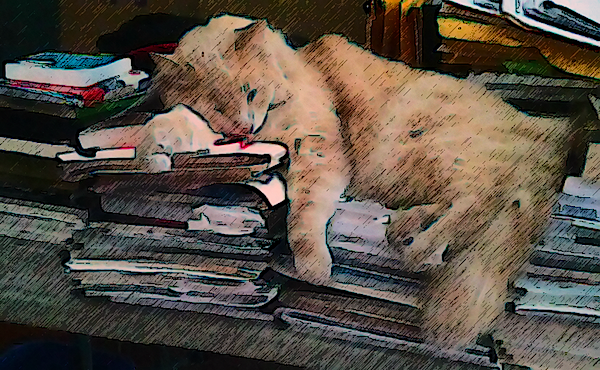
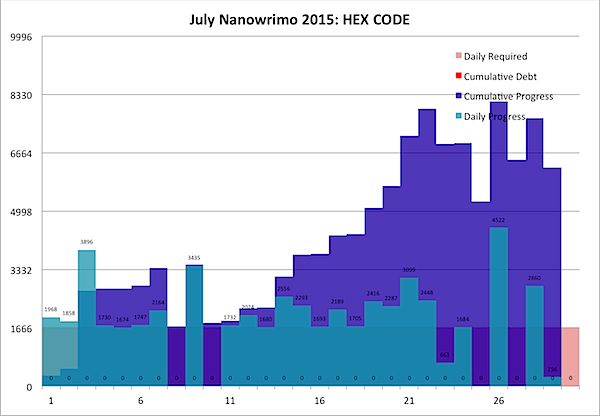
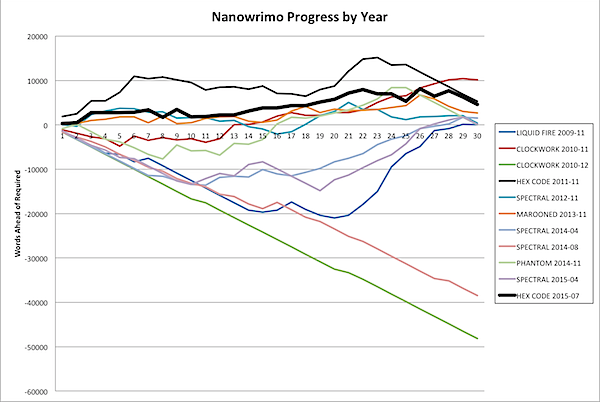
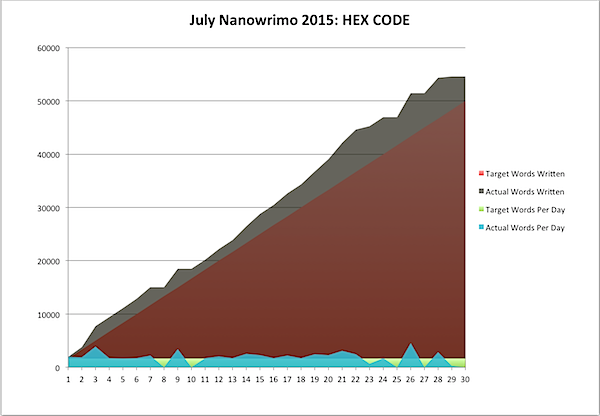
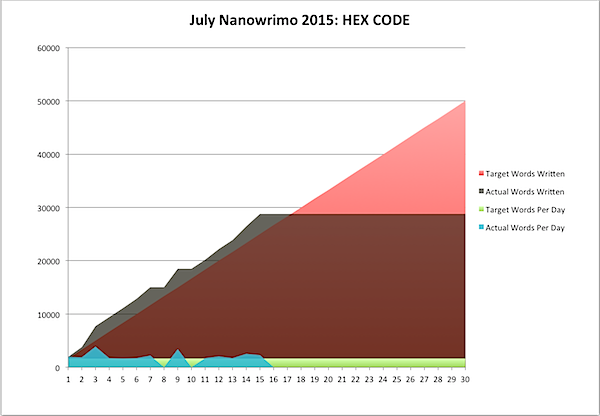
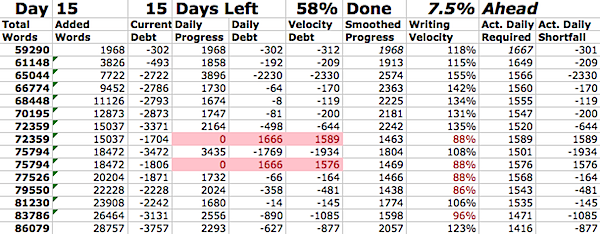

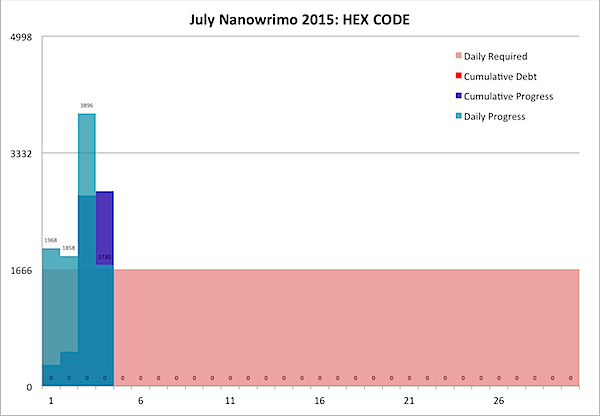
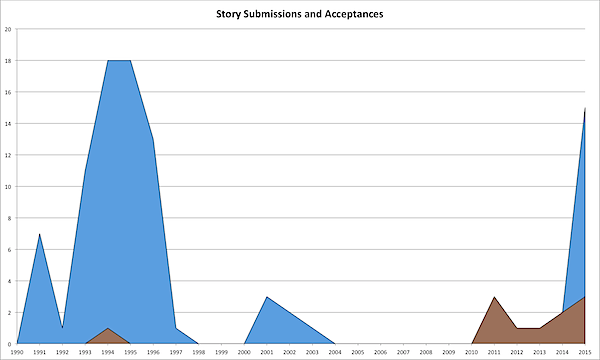
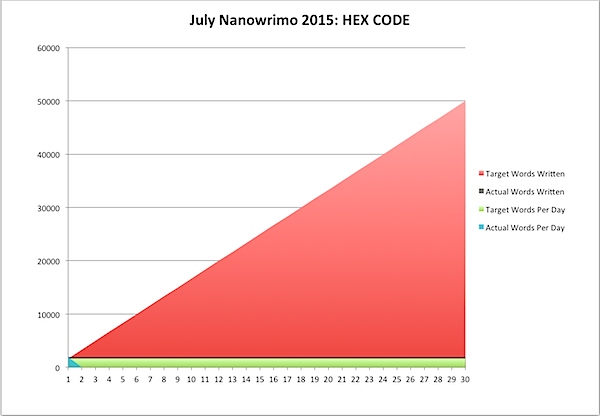
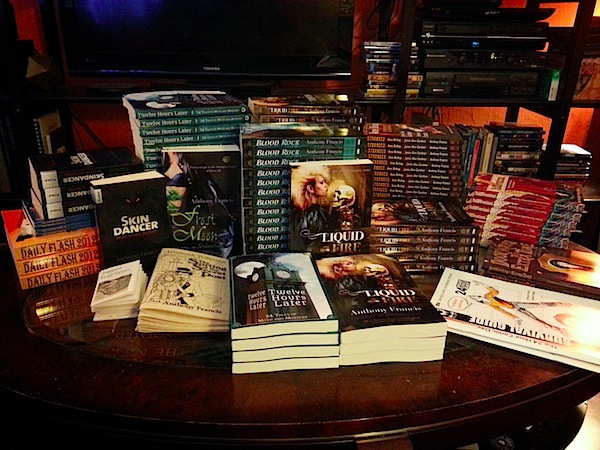
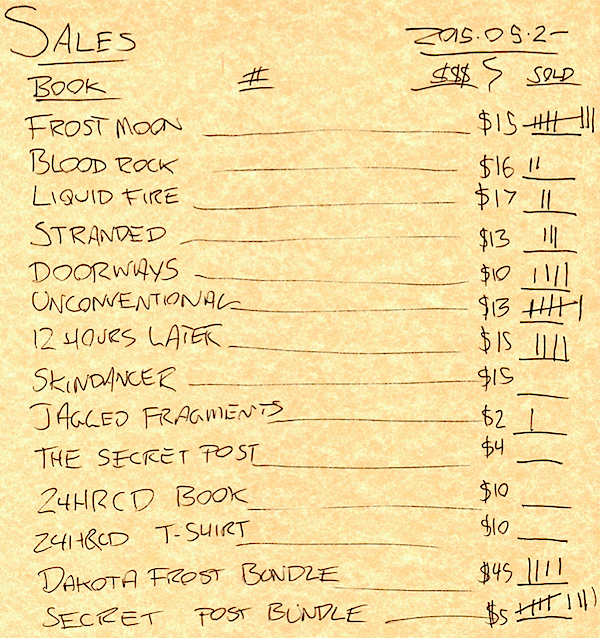
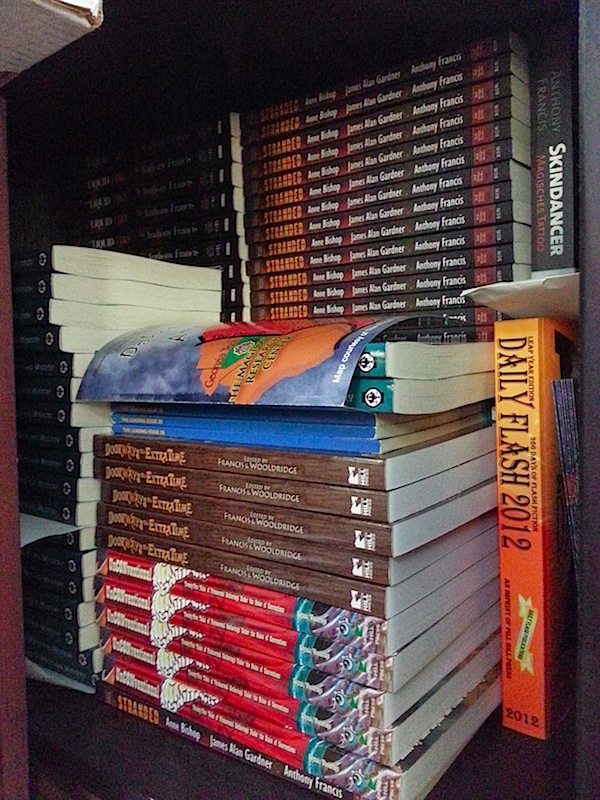
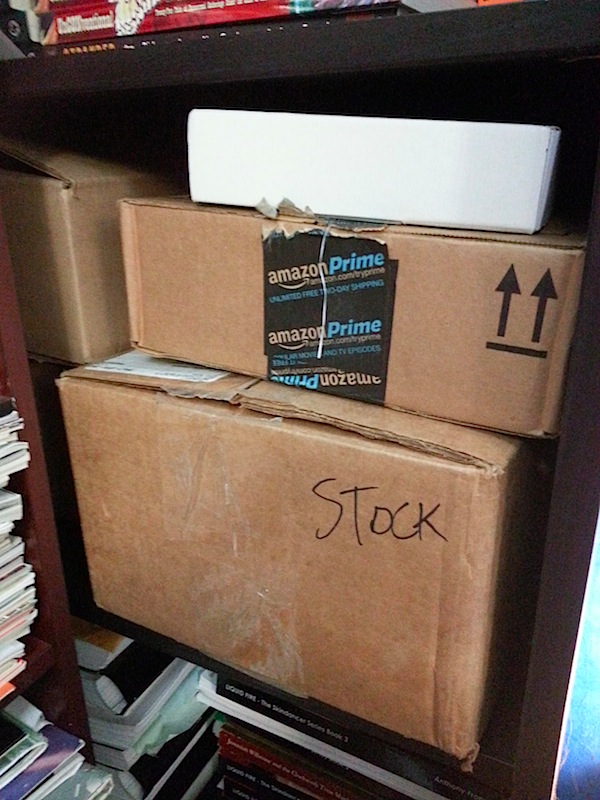
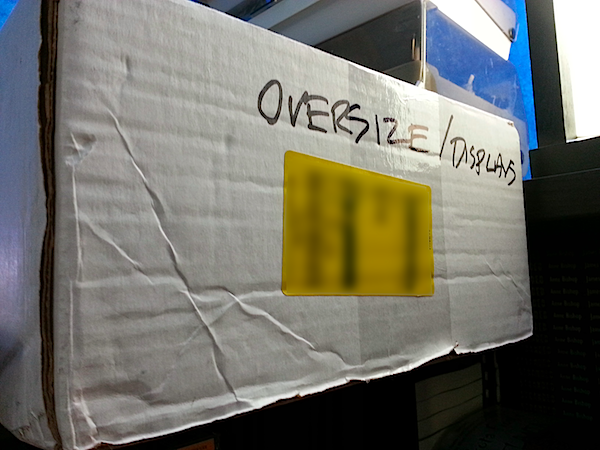


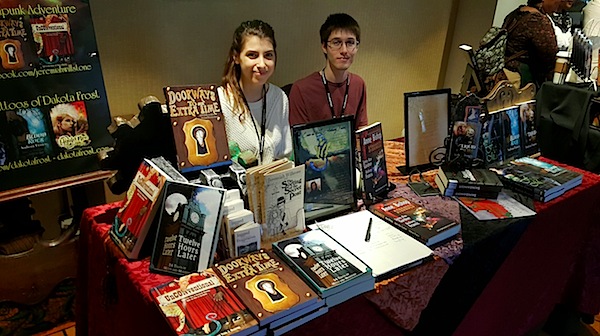
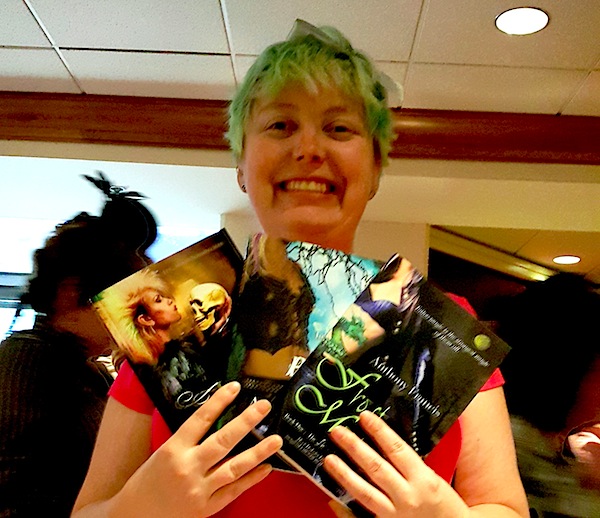
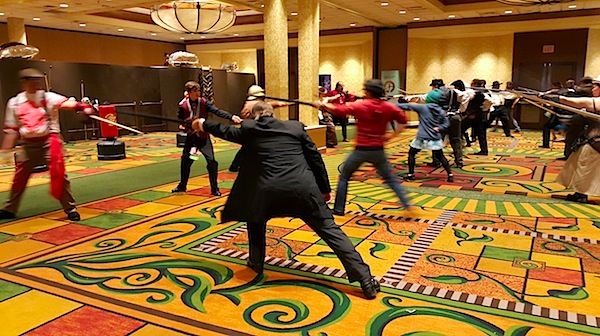


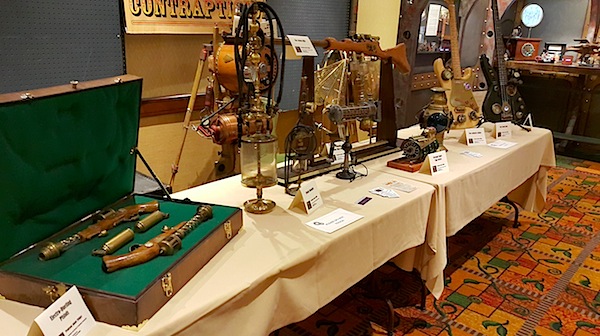
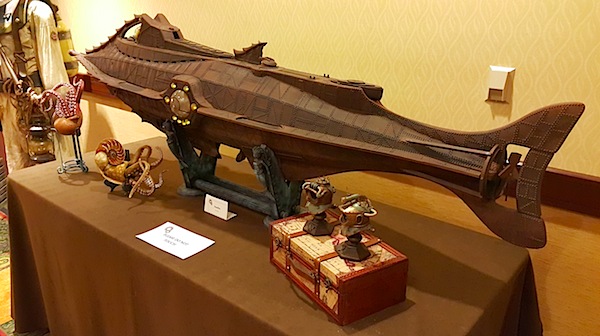
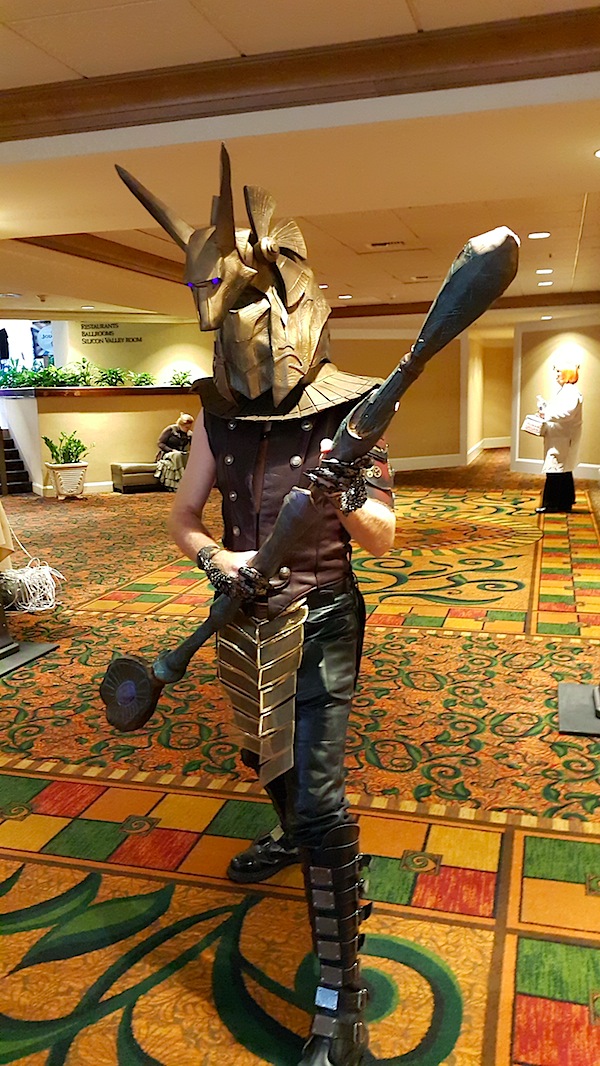
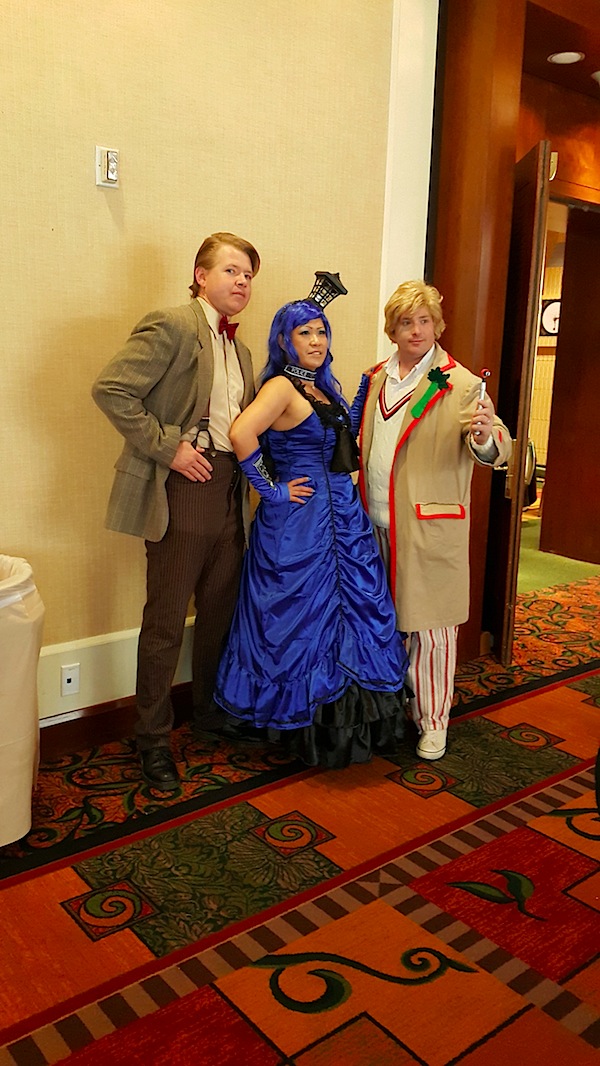
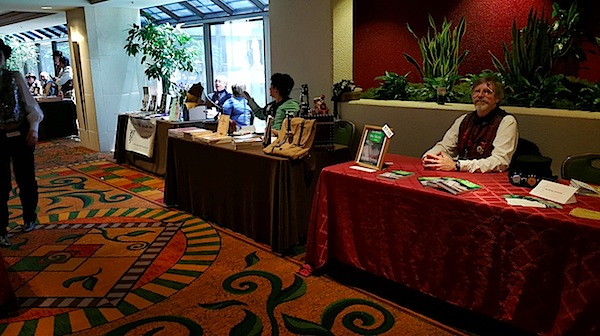


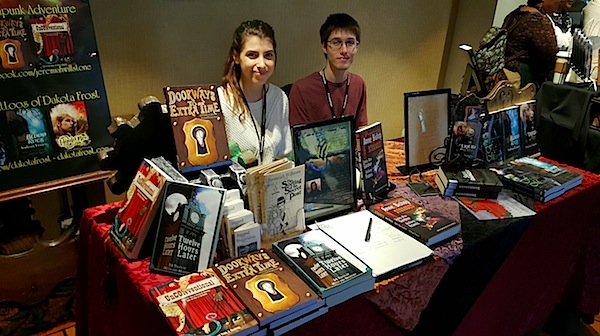
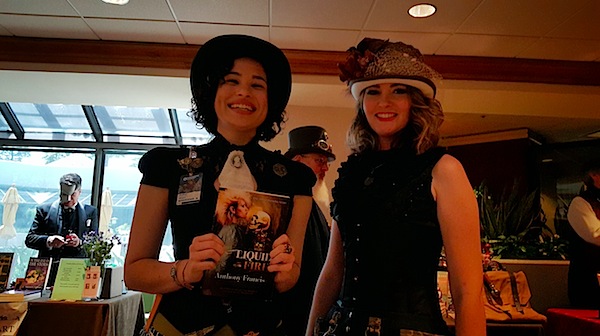
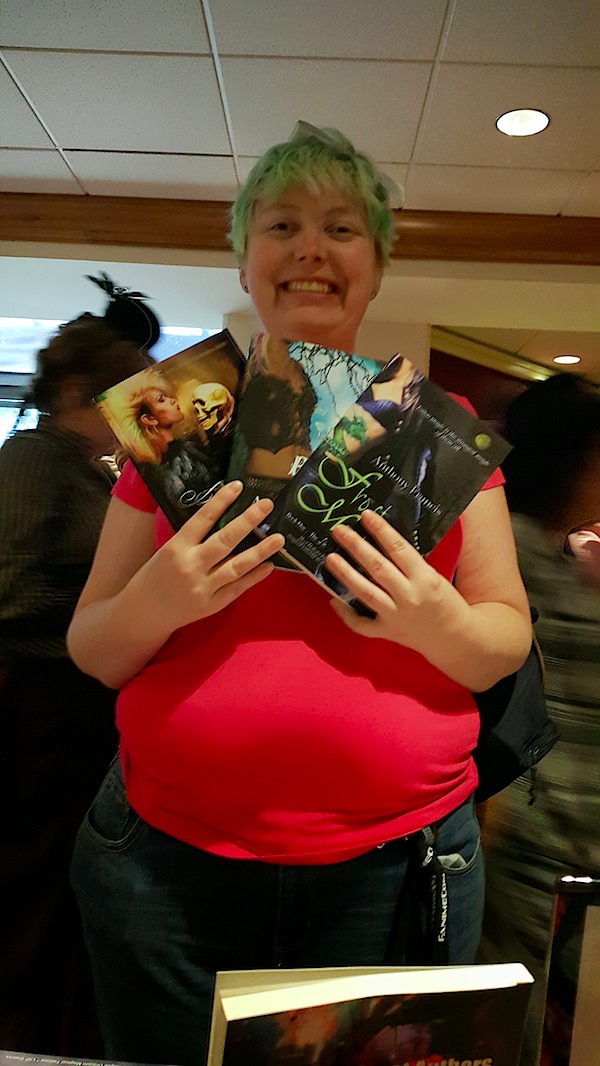
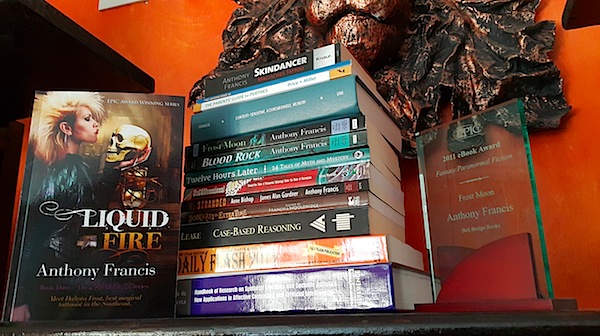








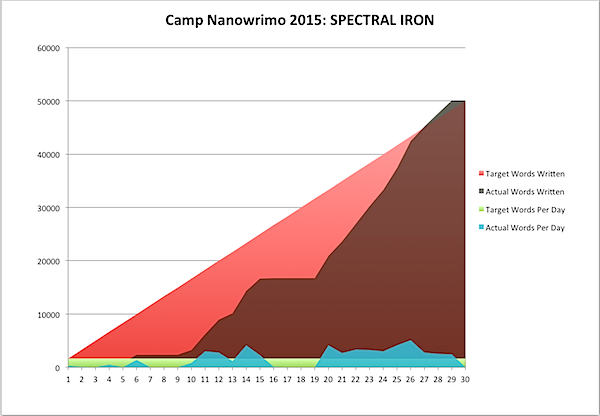
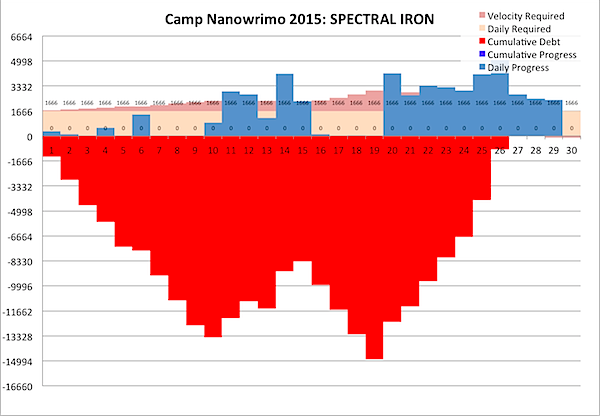
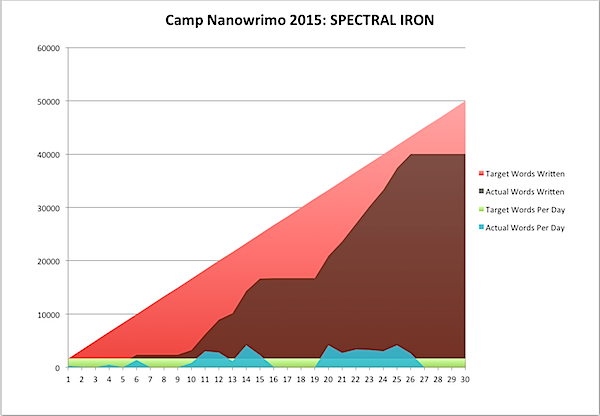

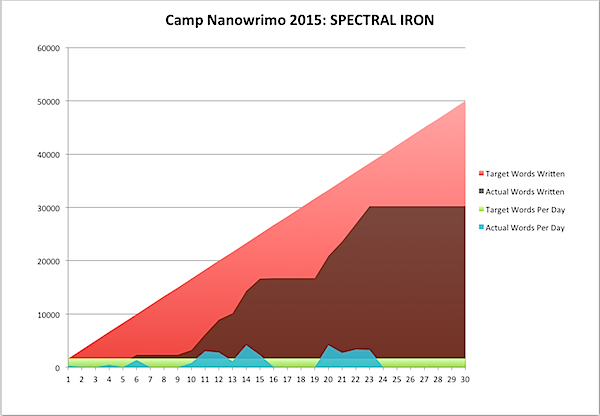

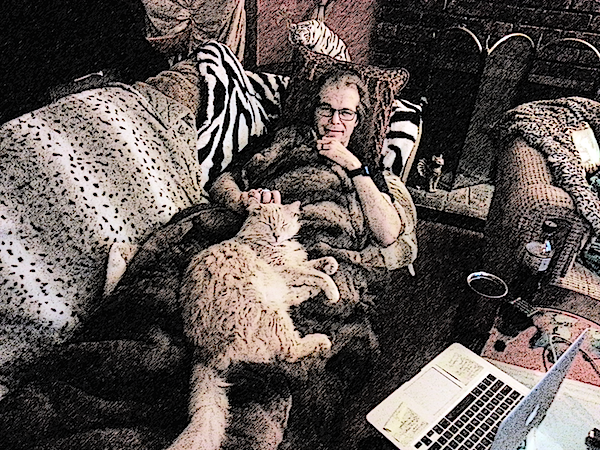


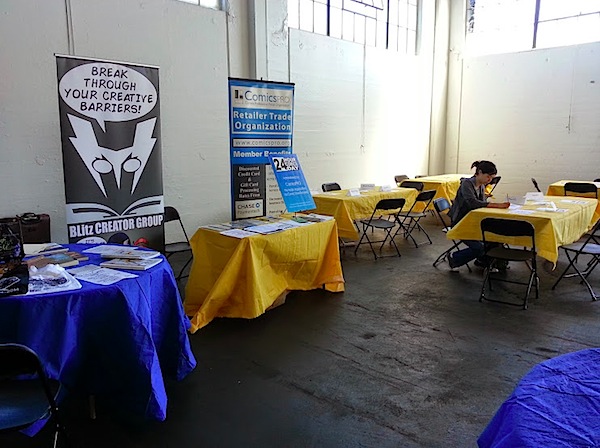 APE is held at Fort Mason this year, and they gave us a space in the back provided by ComicsPRO, the comics retailer's association. The tables were all right, but once Nathan, my partner in Blitz Comics, arrived and took a look at the scene, he put some thought into it and rearranged the space to make it more inviting.
APE is held at Fort Mason this year, and they gave us a space in the back provided by ComicsPRO, the comics retailer's association. The tables were all right, but once Nathan, my partner in Blitz Comics, arrived and took a look at the scene, he put some thought into it and rearranged the space to make it more inviting.
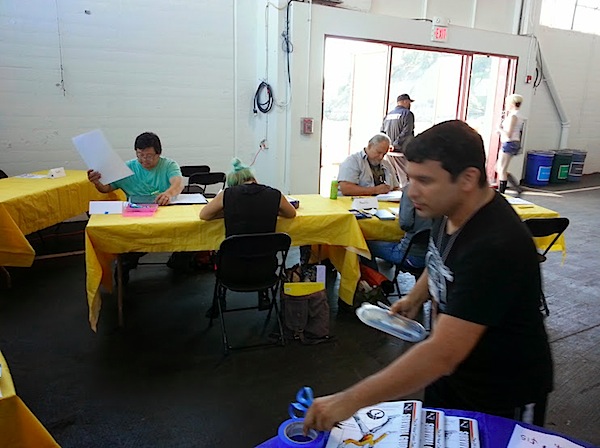 The end result is that our yellow tables made an arrow pointing at the Blitz logo, and there was now a central entry space where Nathan could put information designed to guide creators to "drop in" at the event.
The end result is that our yellow tables made an arrow pointing at the Blitz logo, and there was now a central entry space where Nathan could put information designed to guide creators to "drop in" at the event.
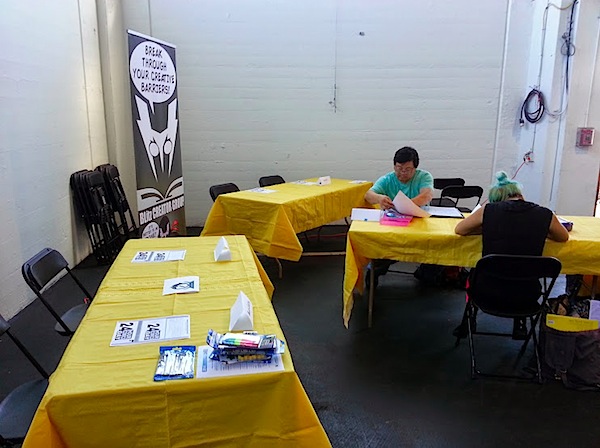 We had seven people signed up for the event, which we marked with nametags. Not all those people showed up, but many did, and we had a sizable table of people tackling at least one leg of the IRONHAND Triathlon.
We had seven people signed up for the event, which we marked with nametags. Not all those people showed up, but many did, and we had a sizable table of people tackling at least one leg of the IRONHAND Triathlon.
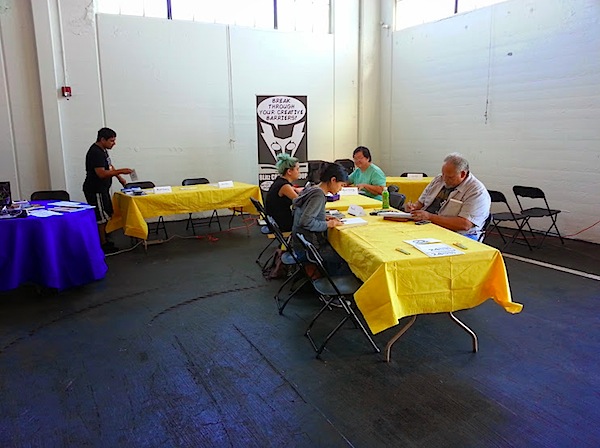 The pure 24 Hour Comic Day experience is unbroken - 24 pages in 24 hours, with no preplanning or preparation. But Fort Mason closes at 7, so we had to break up the event into three shifts of 8 hours each, the first at Fort Mason and the two latter ones nearby. But once we split it up, we decided to evolve the event further, and to encourage everyone to just drop in and draw!
The pure 24 Hour Comic Day experience is unbroken - 24 pages in 24 hours, with no preplanning or preparation. But Fort Mason closes at 7, so we had to break up the event into three shifts of 8 hours each, the first at Fort Mason and the two latter ones nearby. But once we split it up, we decided to evolve the event further, and to encourage everyone to just drop in and draw!
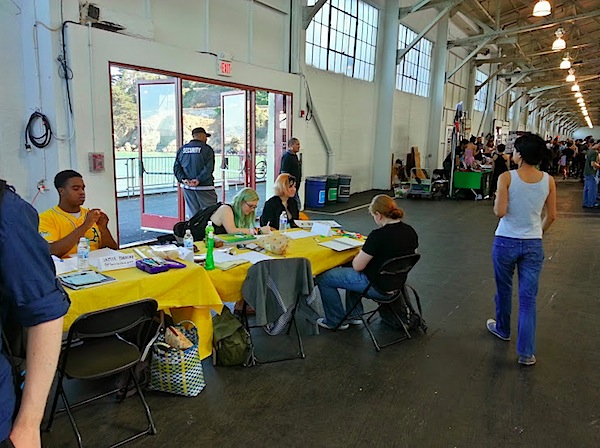 After some iterations on the signage, Nathan hit on "Creator's Drop In Area" and enough messaging so people knew how to use the space. At the end, we had artists dropping in to draw without us having to explain anything, and I got to kick back at our table and draw and shoot the breeze with Marco of ComicsPRO and with Nathan.
After some iterations on the signage, Nathan hit on "Creator's Drop In Area" and enough messaging so people knew how to use the space. At the end, we had artists dropping in to draw without us having to explain anything, and I got to kick back at our table and draw and shoot the breeze with Marco of ComicsPRO and with Nathan.
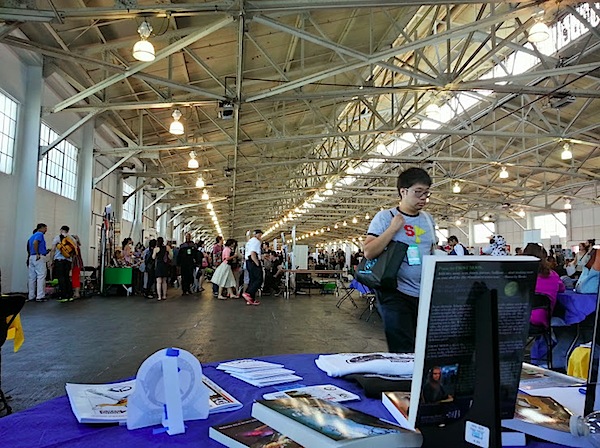 The event was a big success, and we then moved to the
The event was a big success, and we then moved to the 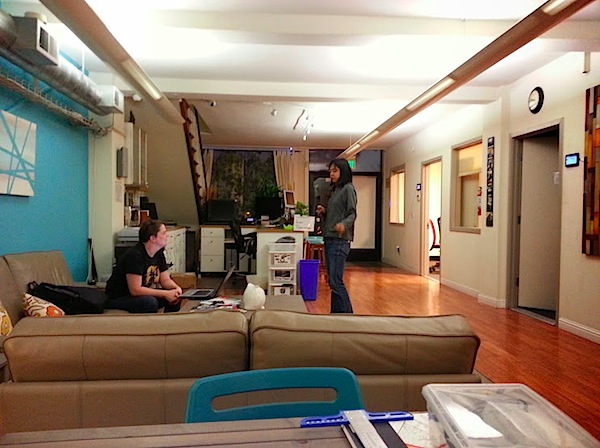 We had the place to ourselves, so creators spread out over a few different rooms. I think we succeeded in creating a creative oasis for our creators, as some who had left earlier made it a point to come back and join us.
We had the place to ourselves, so creators spread out over a few different rooms. I think we succeeded in creating a creative oasis for our creators, as some who had left earlier made it a point to come back and join us.
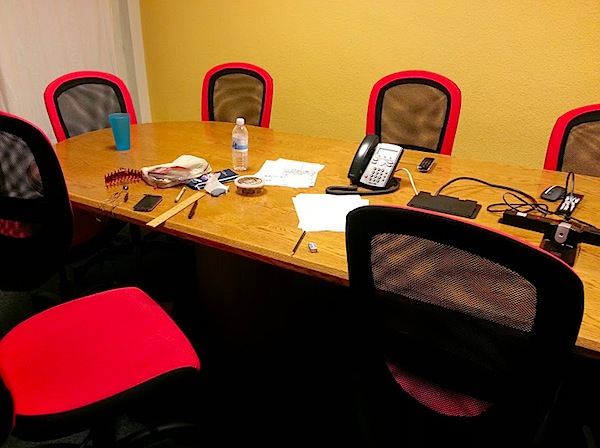 More people joined in the IRONHAND Triathlon remotely, so Nathan is hard at work on the winners certificates, which will have laminated pieces added to them, one for each of the segments of the Triathlon they completed.
More people joined in the IRONHAND Triathlon remotely, so Nathan is hard at work on the winners certificates, which will have laminated pieces added to them, one for each of the segments of the Triathlon they completed.
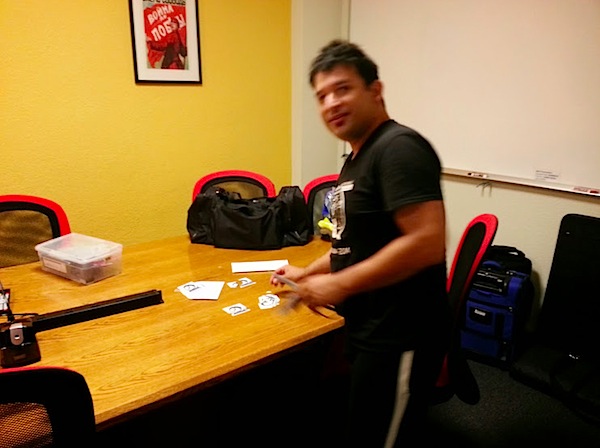 We're still chugging away, with Paxti's pizza about to arrive, so I think I'm going to close this blogpost and get back to it. I may not be doing 24 Hour Comic Day this time - I did it last week - but I want all of our creators to be happy.
Excelsior!
-Anthony
We're still chugging away, with Paxti's pizza about to arrive, so I think I'm going to close this blogpost and get back to it. I may not be doing 24 Hour Comic Day this time - I did it last week - but I want all of our creators to be happy.
Excelsior!
-Anthony 
